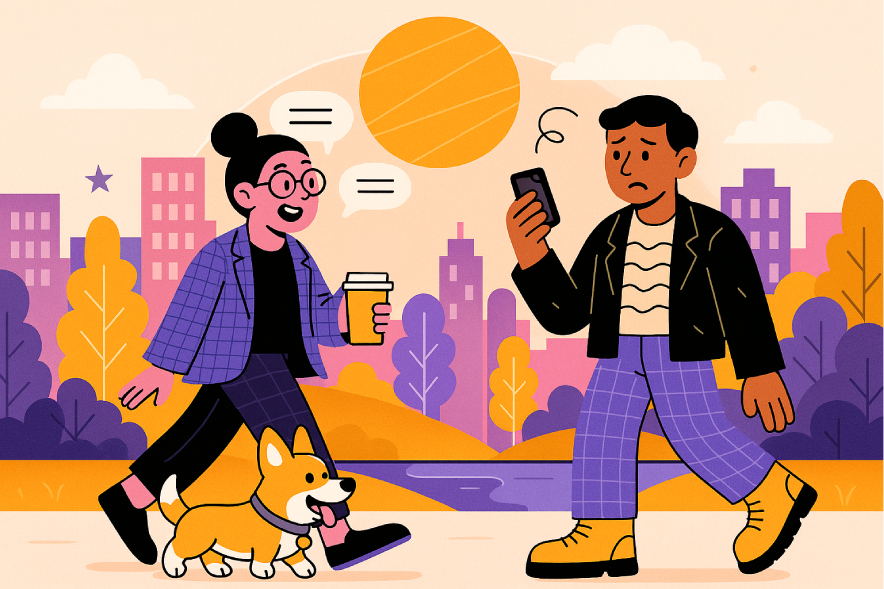Let’s answer the big question first: What is yap trapping? It’s when someone talks way too much in a conversation—like, past the point of reasonable. It stops being a conversation and turns into a monologue, usually without anyone realizing what’s happening. Basically, it's when talking becomes a trap instead of a two-way street.
And look—I’m not pointing fingers. We've all done it. You start telling a story, get a little too excited, and next thing you know, you’ve brought up your third-grade math teacher and your weird fear of escalators. How did we even get here?
Why we yap (and yap, and yap...)
Sometimes it’s nerves. You ever been on a date and just talked through your entire life story before the appetizers showed up? That’s anxiety in action, baby. Some of us use words like a safety blanket—we throw them around to cover up the silence.
Other times, it’s about control. Not like evil villain kind of control, but just a subtle “I feel safer when I’m talking” vibe. If I’m talking, I don’t have to listen. If I’m talking, I’m not being judged. That kind of thing.
There’s even research behind this—according to studies in the world of psychology (yeah, people actually study this stuff), we think we’re being more likable when we talk more. Spoiler: we’re usually not.
Real-life yap trap situations (you’ve definitely seen one)
Okay, imagine this:
You ask someone, “Hey, how’s it going?” And instead of a quick “Good, you?” they launch into a full recap of their morning routine, including a detailed analysis of their barista’s mood. Fifteen minutes later, you’re still standing there, clutching your coffee like a lifeline.
Or maybe your co-worker gives an answer in a meeting that turns into a TED Talk, complete with metaphors and historical context. “All I asked,” you think, “was whether you’d seen the email.”
This is yap trapping in its purest form.
But wait—are you the yap trapper?
Here’s the hard truth: if you’re reading this and thinking of all the other people who yap trap, it might actually be... you. (Sorry. I know. Brutal.)
The signs? You talk way more than you listen. You often finish people’s sentences (because “they’re too slow,” right?). You feel weird if there’s a pause. You leave conversations thinking, “Wow, I talked a lot... but what did they say again?”
It’s not a moral failure. It just means you’ve got some habits to shake.
Why yap trapping makes conversations worse
You ever leave a conversation and feel tired? Like you just ran a marathon? That’s what happens when yap trapping sucks the air out of the room.
Real conversations need space—space to think, to react, to ask questions. When one person fills up all that space, it shuts the other person down. They stop sharing, stop responding, and eventually they stop caring.
Even worse, it makes you seem like you don’t care. You probably do! But if you're doing all the talking, nobody can tell.
How to break free from the trap
Okay, first of all—breathe. Seriously. Just stop and breathe more during conversations. Pause after you say something. Count to three in your head. It’s weird at first, but it gives the other person a chance to jump in.
Ask more questions, and then let people actually answer them. Not with a follow-up story about how you also went to Greece in 2014, but with actual curiosity. Like, “Oh cool, what was that like for you?” And then zip it.
Another tip? Pay attention to body language. If someone is glancing at the door, their phone, or their watch—they’re probably not loving the soliloquy.
Also, just call yourself out sometimes. “Wow, I’m rambling. Your turn!” It makes you human, and people like that.
Yap trapping on the internet is a whole thing too
Group chats? Full of yap traps. Work meetings on Zoom? One person going on and on while the rest of us quietly eat chips with our mics off. Social media captions that are 18 paragraphs long? Yap traps in digital form.
And look—I’m not saying we should all be quiet little mice. Talk! Share! Laugh too loud! But just… read the room, you know?
So... what now?
Start by noticing it. Maybe even laugh at yourself a little when you catch it happening. Conversations aren’t supposed to be speeches. They’re supposed to be messy and weird and shared.And if someone else traps you in a yap cyclone? It's okay to interrupt gently. “Hey, real quick—can I ask you something?” Boom. Shift made.
We’re not robots (thank God). So let’s stop talking like we’re trying to win an imaginary word count contest and start listening like we actually care.
You never know what you’ll hear when you finally stop filling the silence.
